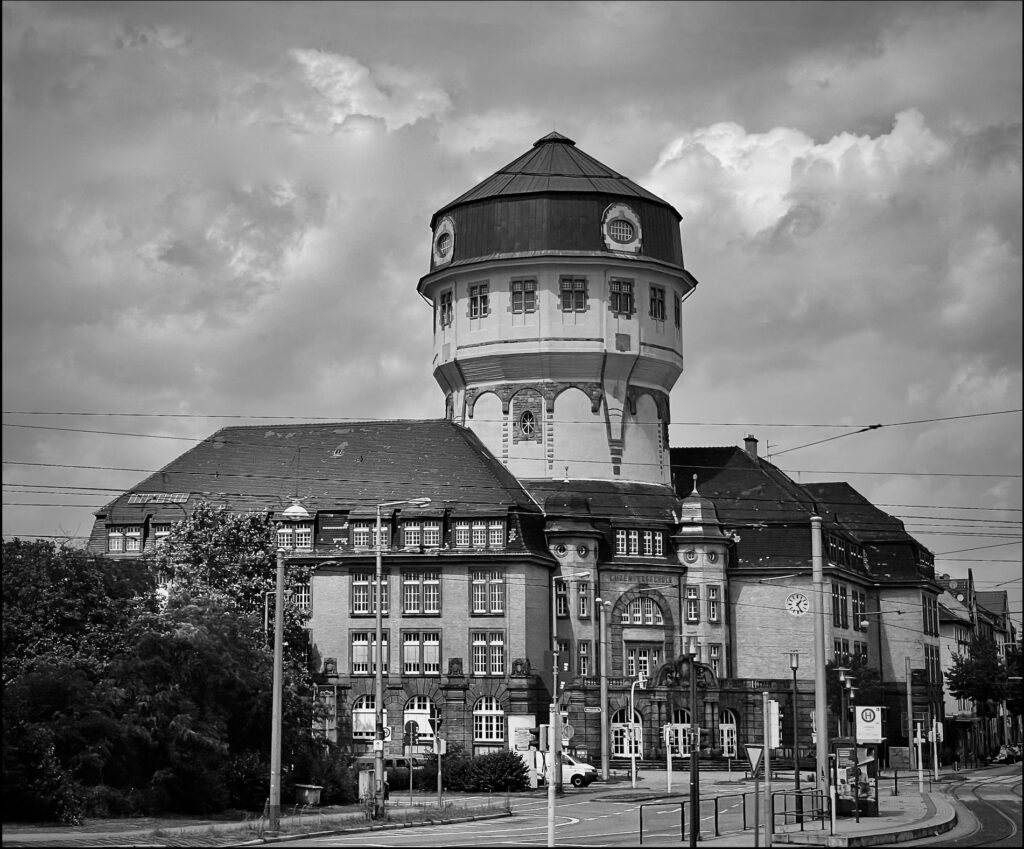Childhood in Mannheim
by Ruth Spencer
As far as I can remember, my early childhood in Mannheim was fairly uneventful, neither particularly happy nor unhappy. I remember Oma, my grandmother, taking me with her on a vacation to a big hotel in the midst of pine forests in the Black Forest. It was she who taught me how to spell words and the basics of mathematics during long walks in the woods. I remember afternoons spent in one “Kaffeehaus” or another with my mother or my aunt and their friends. I remember Sundays when Maia* took me along to the garden she and her husband had somewhere in the suburbs. I went to school, had friends and still have the “Poesie Album” every child had at the time, with entries by friends, teachers and family.
Little by little, however, life became more difficult and restricted for Jews. I was hospitalized with scarlet fever and confined to a large ward with several other children. I was the only Jewish child there and got my first taste of anti-Semitism from these children. They tried to scare me with crickets by putting them near me, especially in the bathroom. But it was a year or so later, while playing in a courtyard, that a boy my age got angry with me, called me “dirty Jew”, threw a stone at me and hit me just above my right eye. I still have the mark today. In school too, it was not uncommon to be ridiculed or called “dirty Jew” by other students.
Beaches along the Rhine, parks and public benches were no longer accessible to Jews. Neither were cinemas and theaters. There were frequent talks of men, often friends of the family, who were arrested, taken to Dachau or some other camp, severely beaten and sometimes again released. By then my grandmother’s business at the city’s abattoir had been confiscated. My mother, Mutti, was often away from home, working at whatever jobs she could find. Uncle Sally, my mother’s brother, had emigrated to South America and Aunt Dadi, with her husband, had left for the United States. Some of my friends left Germany with their parents.
Meanwhile all Jewish children were banned from regular schools and forced to attend the only Jewish school in Mannheim. It was located in a small street somewhere behind the Market Place, near the main synagogue, quite a long way from home.
In November 1938, the day which became known as “Kristallnacht” began feverishly with many phone calls. Jewish families phoned around to inform each other that something terrible has happened or was about to happen although no one seemed to know exactly what. My grandmother asked me to take a very small suitcase filled with whatever valuables were still in her possession. I was to take them to Maia’s home, possibly also to get me out of harm’s way. By then Maia’s husband had joined the S.A., or so called “Brown Shirts”. When he came home in the afternoon with a group of friends, all in uniforms, Maia quickly hid me in the bedroom under the covers of her bed. I could hear the men in the adjacent living room drinking beer, laughing loudly and boasting about what they had done to Jews that day. I could not totally understand all their words, let alone comprehend them. But I got the impression that something terrible must have happened. After nightfall Maia tiptoed me through a back door and walked me home.
It was a long walk taking us past stores owned by Jews: the windows were broken, the stores were looted. As we passed Jewish homes and apartment houses, everywhere, on the sidewalks, were huge piles on fire with flames engulfing books, furniture, belongings. Groups of people and S.A. men attended to the flames rising above their heads. It was horrible. When we arrived in front of my building several piles of fires were burning on the sidewalk. We looked up and saw the lights were lit in our apartment. Maia sent me upstairs while she remained waiting across the street until I signaled her from a window that I got home alright.
What I found is difficult to describe but remains, like everything else that happened that day, deeply embedded in my memory. Both Mutti and Oma were in tears. Practically all the furniture was damaged, knocked over, broken, scratched; shattered glass was everywhere. Our leather covered sofa was slashed with a knife. So many things were thrown out the window and still burned on the sidewalk below. Mutti and Oma, while trying to pick up some of the glass and broken items from the floor, told me that ten very tall SA and SS men had entered the apartment and had locked them up in the bathroom while they ransacked the entire place. I too began to cry while helping to clean up the mess.
The next day it was announced that nobody is allowed to sell anything to Jews. Nevertheless Oma sent me to the grocery store next door to buy some milk. Despite the “verboten to sell to Jews” sign already in the window, the grocer, who knew me, gave me what I asked for.
I do not remember how the following days went by. There was no school to go to anymore. But I remember that suddenly my mother was away for a few days. Only later did I find out that she had tried to go to France but was turned back at the border because she did not have the required papers. We had relatives in France, cousins of my mother, and another family more distantly related. Somehow the decision must have been made that they will accept me in their home. They lived in the Lorraine border town of Sarreguemines. One day, in February 1939, Mutti and I went by train to Saarbruecken. We stayed overnight at a relative’s place and the next morning she took me to the railroad station. She was not allowed near the train which was to cross into France. I said good-bye to her at the gate and, carrying my suitcase and filled with a sense of adventure, walked toward the train. I did not cry; I did not turn around to wave another good-bye. Little did I know that this would be the last time I saw my mother.
*Maia was a maid to my grandmother for many years and was literally part of the family. She committed suicide during the war.








